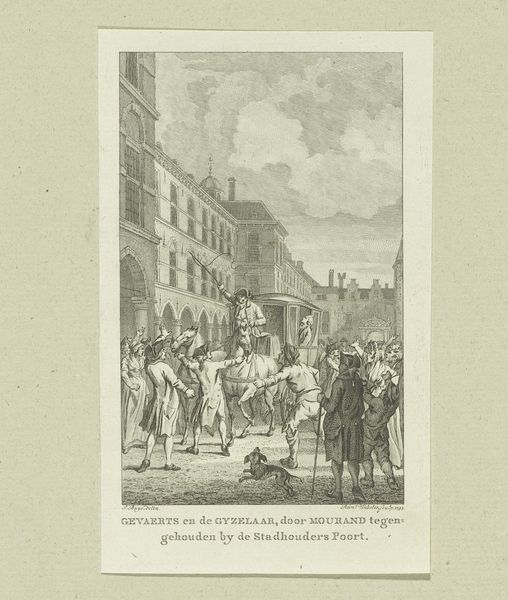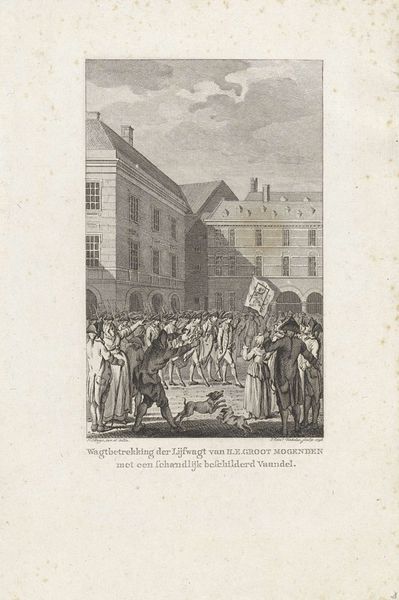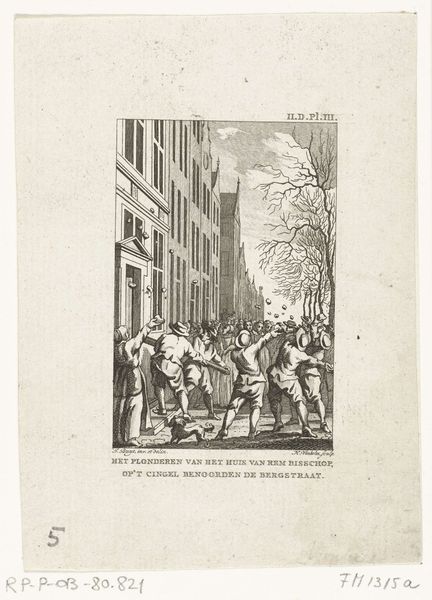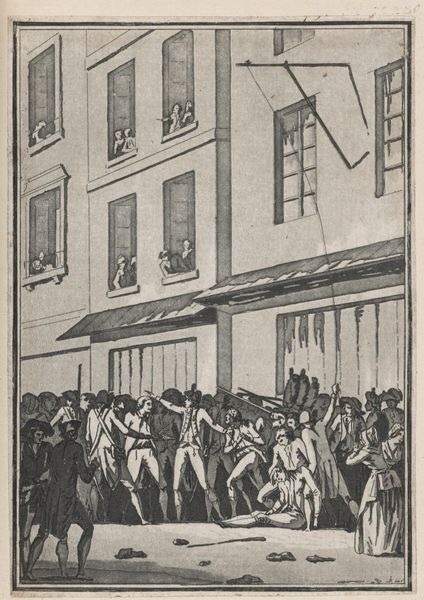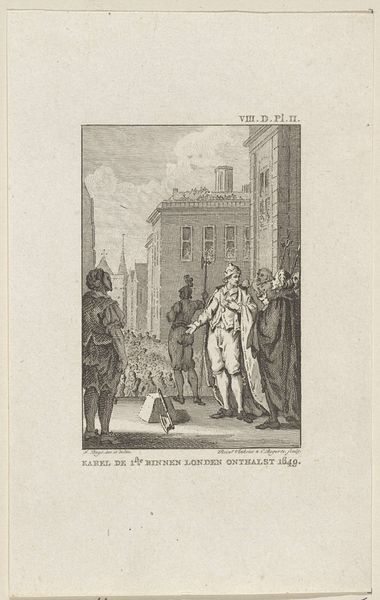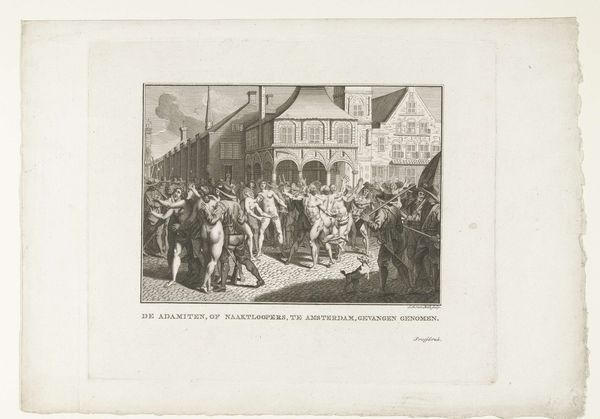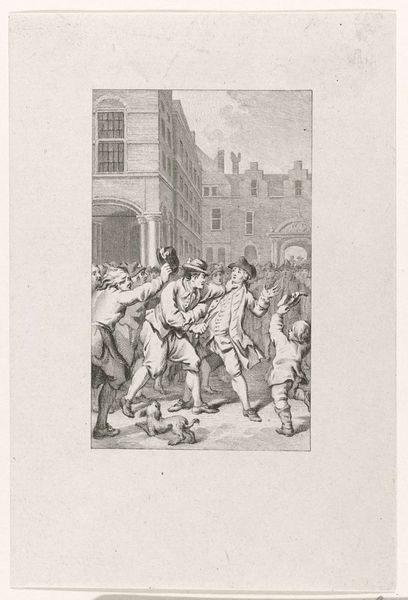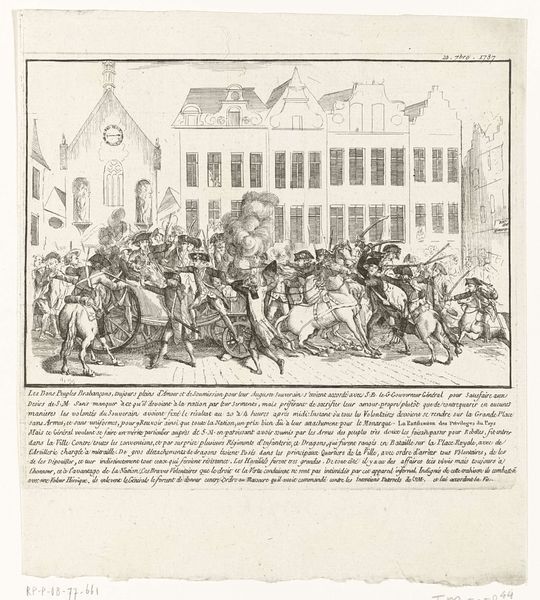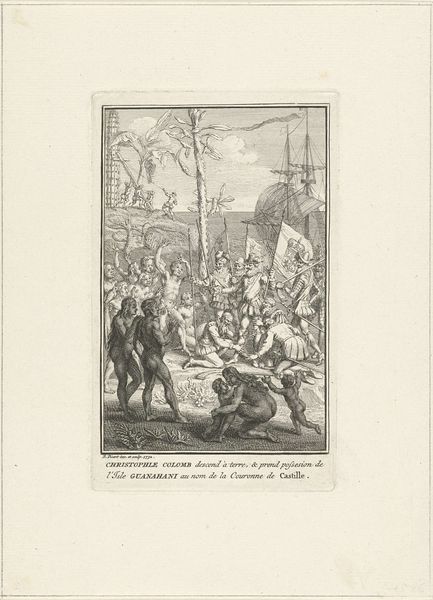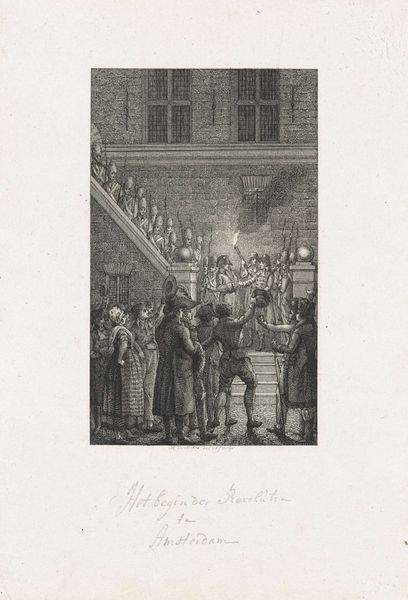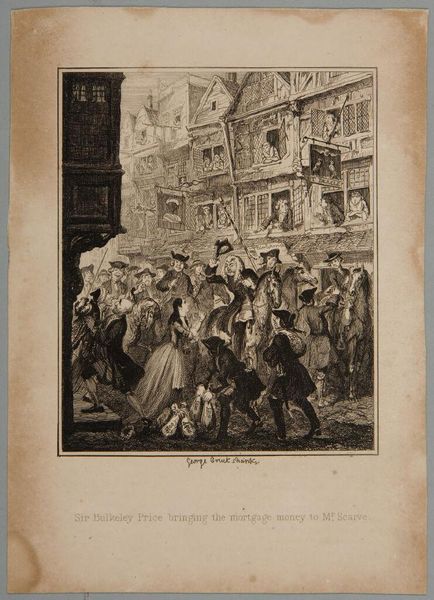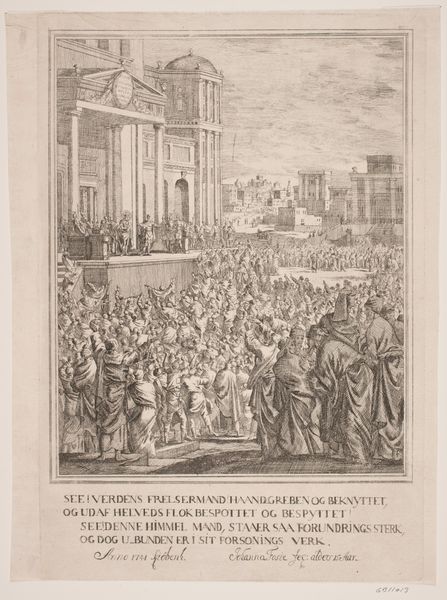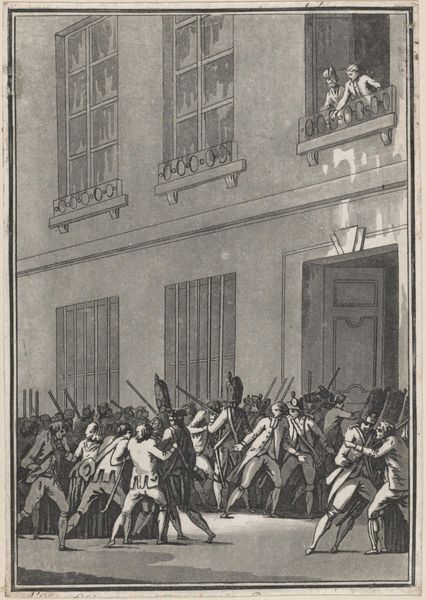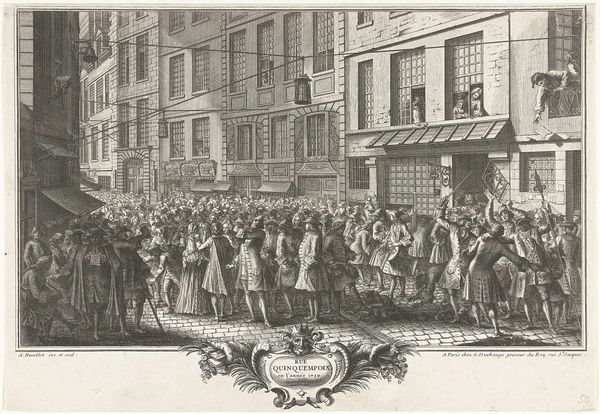
Intrede van de beide Prinsessen Douarières in Den Haag, 1814 1814 - 1816
0:00
0:00
abrahamvinkeles
Rijksmuseum
print, engraving
#
neoclacissism
#
narrative-art
# print
#
old engraving style
#
cityscape
#
history-painting
#
engraving
Dimensions: height 228 mm, width 146 mm
Copyright: Rijks Museum: Open Domain
This print, made by Abraham Vinkeles around 1814, captures the arrival of the Princesses Douairières in The Hague. It’s an etching, meaning the image was incised into a metal plate, probably copper, with acid. Lines of varying depths were created, which hold ink and transfer to paper when printed. The choice of etching is significant. Unlike painting, which requires individual artistic genius, etching allows for the relatively easy reproduction of images, suiting a world of mass media and communication. Look closely, and you'll see the image celebrates a specific political event. The Princesses Douairières are greeted by a jubilant crowd. By choosing printmaking, Vinkeles created an artwork that could be widely distributed, reinforcing support for the House of Orange among a broad public. The print medium itself, therefore, becomes a tool for shaping public opinion and legitimizing power. It’s a reminder that materials and methods are never neutral; they always carry social and political weight.
Comments
No comments
Be the first to comment and join the conversation on the ultimate creative platform.
